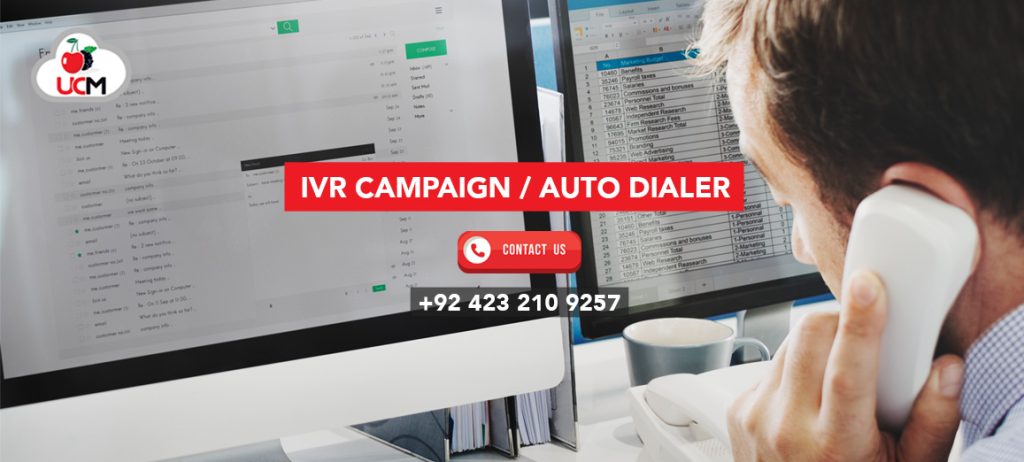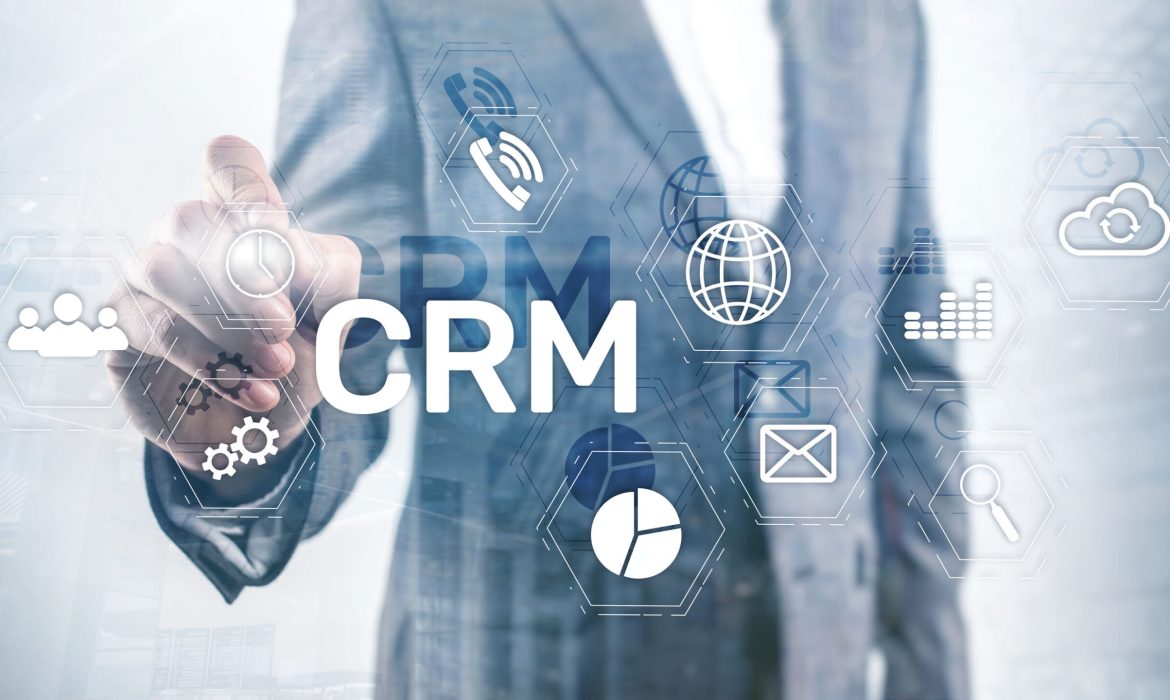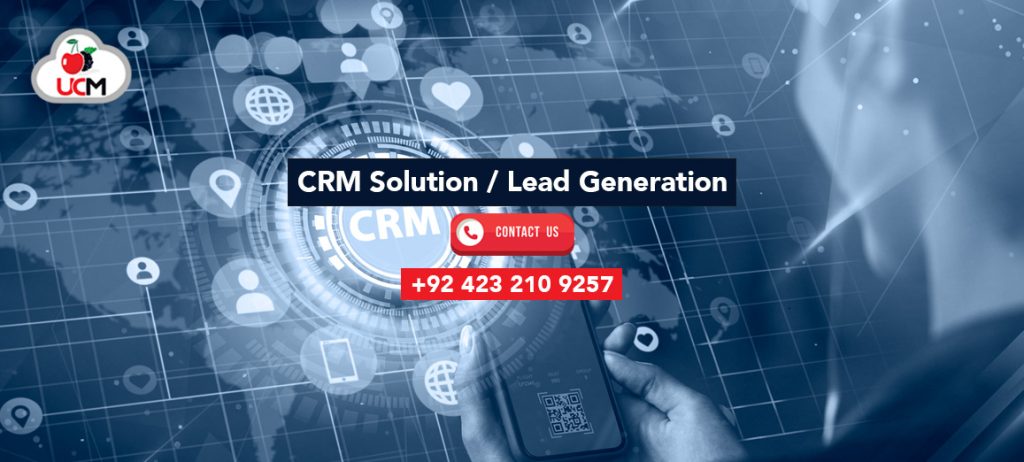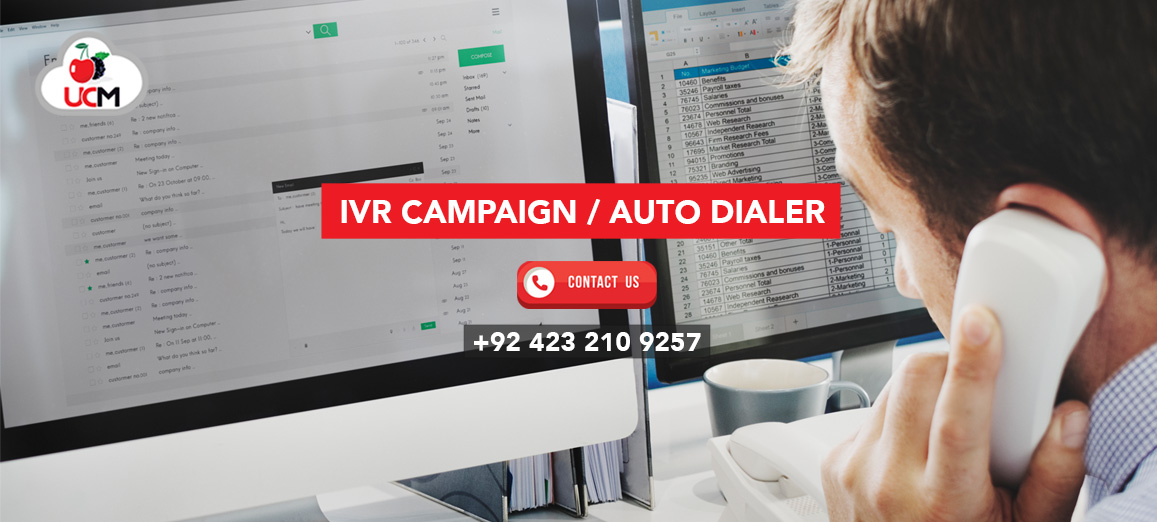Modern Efficiency: Cloud-Based Call Centers vs. Traditional Call Centers
Significance of Cloud-Based Call Centers
Nowadays, new trends in business communication are becoming popular. Still, some companies consider traditional call centers the right choice to achieve their business goals until they move to other options. Traditional call center setup relies on in-person resources: in-person agents, hardware, and physical tools. It gives you complete control of your business processes allowing you to manage and monitor customer service efficiently. However, traditional telephone setups need to be updated with the rise of the digital age. At the same time, Cloud Based Call Centers have emerged as a popular choice to serve different industries ensuring quality and accessible customer service.
Understanding Traditional Call Center Setup
This centralized facility consists of many agents and customer service representatives who manage inbound and outbound calls on your business’s behalf. These call centers handle customer support requests, resolve technical issues, help in lead generation, and perform other communication processes. Agents in these call center setups are equipped with telephones, computers, and other tools, and follow predefined scripts to assist. Call routing is done based on language proficiency, skill level, and call volume. Though interaction through phone calls is the basic mode of communication, some call centers also offer other communication through social media platforms.
Why are Cloud-Based Call Centers Becoming Popular?
Cloud call centers host call management systems, customer data, and telephone infrastructure in the cloud. This cloud computing infrastructure uses remote servers and internet connection to manage incoming and outgoing calls instead of relying on traditional on-site hardware and software. All your teams with authorized credentials can access the software and tools using a web-based interface from any location through an internet connection. This flexibility is suitable for companies that allow remote working or have a distributed workforce. Meanwhile, cloud solutions provide enhanced disaster recovery plans and greater reliability. They optimize your business operations and increase customer satisfaction scores.
How are Traditional & Cloud Call Centers Different?
- Based on Deployment: Traditional on-premises call centers require physical infrastructure, so it takes a long time to deploy. On the other hand, AI Chatbots for Cloud Call Centers are easy to deploy, set up, and highly scalable.
- Cost: You need high upfront costs for licenses, hardware, and ongoing maintenance to set up traditional call centers. Conversely, cloud contact centers follow a pay-as-you-go model and facilitate subscription-based pricing.
- Feature & Customization: Some companies still prefer on-premise systems because they give them full control over software, hardware, or business data. On the other hand, cloud systems offer advanced features, automatic updates, and easy integrations.
- Maintenance & IT Resources: Traditional call centers require dedicated IT staff to manage maintenance and upgrades. On-going costs for support and repairs are additional. Luckily, there is no such hassle in cloud call centers as your cloud service provider manages maintenance and upgrades eliminating the need for in-house IT staffing.
- Data Security & Privacy: Although cloud setup is secure because third-party providers manage the data, it may not fulfill privacy requirements. Meanwhile, on-premises call centers give you complete control of your business data, which is essential for companies with strict compliance such as healthcare.
- Remote Access: Traditional setups are limited to in-house employees due to using outdated technology like desk phones. Conversely, remote workers can easily access the cloud system from anywhere through an internet connection, ideal for hybrid teams.
- Scalability: In a traditional call center scenario, you have to purchase new hardware e.g. phones and servers to scale. However, you can instantly scale according to your business needs through software.
- Integrations: With custom coding, integration is easier in a traditional setup but cloud call centers facilitate seamless integrations.
What are the Top Advantages of Cloud Setup?
- Offer Easy Setup: The cloud contact center system has a user-friendly interface, so you can easily manage the setup process without any training or hiring an IT expert. The simple and hassle-free installation can be completed quickly instead of waiting for days.
- Facilitate Remote Access: Cloud-based systems promote hybrid teamwork. Your remote employees can manage incoming and outgoing calls from anywhere through an internet connection. It enables businesses to hire talented employees globally and continue operations without interruption.
- Round the Cloud Availability: Call centers can ensure customers can reach them to resolve their issues 24/7 even after formal closing hours. They can get a faster response that improves the customer service experience.
- Offer CRM Integration: Companies can efficiently organize and manage their business data through CRM integrations. This further keeps all your teams on the same page about customer issues.
- Allow Call Recording & Monitoring: Another benefit of cloud systems is that they let you record and monitor customer interactions in real-time. Supervisors can evaluate the agents’ performance through these recordings and suggest improvements.
- IVR Technology: It facilitates efficient call routing, directing customers to the most relevant agent. This further reduces wait times by offering self-service options, lowering your agent burden, and increasing customer satisfaction scores.
- Outbound Calling: Cloud contact center systems automate many sales and marketing tasks. Businesses can easily run sales and marketing campaigns.
- Cost-Effective Solution: Hosted call center solutions do not require costly hardware or servers. They are quite affordable solutions because businesses only pay for the services they use.
- Offer Greater Scalability & Flexibility: Cloud solutions are highly scalable and flexible to handle your business’s fluctuating needs. You can scale up during peak seasons and down during off-busy routines.
How to Move to Cloud-Based Software?
First, assess your call center infrastructure and identify your pain points. Next research on different cloud service providers to evaluate the offerings such as security, features, and pricing models. Then, develop a comprehensive migration strategy to ensure a smooth transition to the cloud. Rebuild your business applications or assess the compatibility of existing applications with the cloud to avoid losing important business data. Implement encryptions, disaster recovery plans, and monitoring tools to protect data in the cloud. Train and educate your employees about new setups for better workflow. Monitor your cloud solution performance regularly for improvement.
Closing Thoughts
Today, there is a growing trend of moving from traditional setups to Cloud-Based Call Center services in Lahore for improved accessibility and high reliability. The advanced call centers have eliminated the flexibility and scalability limitations, allowing companies to offer a top-notch customer service experience. Don’t delay moving to the advanced solutions; contact CherryBerry UCM to take a bold step towards cloud computing.
Proven Strategies for Successful Customer Relationship Management
Why is Customer Relationship Management Strategy Required?
Do you know existing customers can be more profitable than new ones? Making a purchase does not mean that your customer relationship has ended. So why skip on developing those relationships and building loyalty? You can easily manage upsells, cross-sells, and repeat business by establishing trust with your existing customers through a tailored Customer Relationship Management (CRM) strategy. A CRM strategy varies from industry to industry. It is a game plan that combines people, processes, and technology to develop stronger relationships between your customer service, sales, and marketing teams. Let’s explore some useful strategies that can lead your way to improved operations.
1. Define Your CRM Goals for Efficient Customer Relationship Management
The first and most important CRM strategy for a business is to define goals where it stands now and where improvements are required. For instance, you should know what your business would achieve with effective customer relationship management. These particular goals must be SMART (specific, measurable, achievable, relevant, and time-bound) as they can increase your sales by 10%, customer satisfaction scores by 12%, and retention by 5%. Similarly, the main goal of every business is to increase sales so your CRM system provides you with all customer data to support more targeted selling opportunities.
2. Build A Strong Omni-Channel Presence
Although phone calls are still the first preference for contacting customers and leads, they can be found everywhere (other communication platforms). This is why you should integrate other communication channels to communicate with customers and prospects and serve them quickly. Meanwhile, today’s tech-savvy generation wants instant support across different channels, and providing personalized support can do wonders. CRM technology helps you organize all business data from all platforms allowing you to understand your audience’s demands and nurture stronger relationships.
3. Understand Your Customer Journey
Through this strategy, companies can better understand their customer anticipated needs and preferences or what they need and when. This further helps identify your business potential and shortcomings to define actions for further improvement. Companies can gain insights into their pain points mapping out different touchpoints of the customer journey from awareness to purchase and post-purchase. Using these insights, they can deliver content that answers customer questions. Moreover, with customer segmentation such as grouping customers into categories considering common characteristics like age, behavior, and demographics, you can run targeted, personalized, and effective campaigns to increase sales and build long-lasting relationships.
4. Outline Sales Process & Research on the Market
A consistent, structured, and repeatable selling strategy is required for the successful implementation of CRM. Additionally, a clear outline of the sales process is essential to understand a customer journey and get the best outcomes of customer segmentation. Integrating CRM systems into sales processes automates tedious tasks, saves time, and offers rich customer data insights to improve sales strategies. Moreover, a deep understanding of market trends allows them to understand strengths and weaknesses and explore ways to improve their offerings.
5. Use Data Insights For Enhanced Productivity
Advanced CRM systems offer rich data insights to increase your employees’ performance., Your business data should be accurate and error-free to get the best out of it. Moreover, data flow among your sales, customer service, and marketing teams should be aligned with your business goals. Using these insights, you can establish key performance indicators to reflect performance and identify areas for improvement. Interestingly, you can generate and store reams of data through a CRM tool that otherwise is a hectic and time-consuming activity when handled manually. CRM dashboards let companies identify patterns and trends, understand buyer intent, and evaluate business performance to help them make smart business decisions.
6. Dedupe & Clean Up Business Data
Accurate and clean data ensures that your campaign messages always reach the right person at the right time. An effective CRM system records every activity to keep your teams on the same page about business matters. Your teams can remove customers with low engagements or those who have gone dormant. Doing so keeps your database information accurate, reduces the chances of errors and duplication, and promotes data-driven decision-making.
7. Leverage Automation & AI for Customer Relationship Management
Automating routine tasks and using AI solutions can increase the efficiency of your CRM strategy. For example, CRM systems automate sales and marketing tasks. You can schedule social media posts, follow up on leads or send personalized emails. Meanwhile, artificial intelligence can improve customer segments and help engage them with more personalized messages. Predicting the most qualified leads ready to convert enables you to make better target marketing efforts. Analyzing customer preferences lets your teams suggest personalized recommendations to increase the purchase likelihood. Overall, automation and AI as an effective CRM strategy can improve customer engagement.
8. Promise Only Which You Can Fulfil
Another important aspect of successful customer relationship management is integrity, a quality of being consistent and honest in words and actions. Companies can maintain their relationships and reputation through this strategy. This also improves customer satisfaction scores and loyalty, reducing complaints and issues. Thus, promise only realistic things and achieve goals and expectations to avoid disappointing your customers. For instance, you can handle expectations through customer feedback and review.
9. Deliver Personalised Experience
Companies can offer a more engaging customer service experience through tailored content. According to a report, almost 76% of customers feel annoyed when a business shows irrelevant recommendations. Through clear information about customer behavior and preferences and offering personalized services, brands can make customers feel valued and satisfied increasing the likelihood of repeat sales. They can make this possible with the customer’s previous sales history, and a website call to action button. Personalized services make the interaction more relevant raising engagements and conversions.
Conclusion
Ultimately, gone are the days when a business relationship with customers was limited to just buying products. Today, customer relationship management Services have gone far beyond the traditional approach due to technological advancements. Establishing meaningful connections through exceptional support and personalized services has become a need of the hour. Hence, businesses need a strategic approach to manage customer relations in a customer-centric age. If you are looking for new opportunities to increase your customer service experience and relationships, contact CherryBerry UCM experts to streamline your internal and external communication.
The Critical Role of Call Management Software in Boosting Business Efficiency
Why Do You Need Call Management Software?
Today, modern companies are moving to advanced solutions in a bid to improve operational efficiency, satisfy prospective and existing customers, and outshine competitors. The main reason behind this major shift is ever-evolving customer expectations. Enter Call Management Software to help you gain business efficiency while keeping your existing customers happy and loyal. This way you can manage your inbound calls, save time, and strengthen customer relationships. Keep reading further to know how this effective communication technology contributes to making your business successful.
What is Call Management Software?
The customer service teams are well-familiar with call management which can be described as the set of systems and processes companies use to manage all inbound calls. You can get a comprehensive view of incoming and outgoing calls. It ensures your customers receive the best response to their queries and issues within the promised time. Meanwhile, a call management system manages and optimizes customer calls. Supervisors and managers can listen to recorded calls to evaluate agent performance and provide feedback to improve service quality. This central hub contains advanced features like call routing, reporting, IVR, ACD, and real-time analytics to help companies deliver a seamless customer experience.
Exploring the Way Management System Works
Virtual Call management solutions have revolutionized how companies manage their incoming and outgoing calls. It lets companies integrate various channels to manage business communication from all platforms. This is how a call management system works:
- The system automatically routes incoming customer calls considering set parameters. Then, the incoming calls are distributed among suitable agents based on call time, location, date, queue time, interaction history, and customer issues.
- When inbound calls reach the system, the number is compared with all sources to learn about the most effective one. Meanwhile, the tracking system records the caller’s details like name, number, and location for segmentation.
- The callers are sometimes kept waiting in the queues if the customer support agents are busy somewhere. During this tenure, callers can also benefit from IVR, self-service options, or chatbots to resolve their issues quickly.
- Besides this, the call tracking system also supports recording outgoing calls for quality purposes and real-time customer data tracking. This eventually improves the quality of your overall customer experience.
Which Features of Call Handling Systems Offer Great Customer Experience?
1. Interactive Contact Center Dashboard
This reporting tool displays call KPIs and metrics enabling your customer service teams to stay on top of every calling task. Managers and teams can simplify the analysis, get information within minutes, and analyze best practices to optimize agent performance.
2. Call Monitoring
You can supervise your teams in real-time through call listening or monitoring. It is an efficient way to maintain the quality of interactions and resolutions. Moreover, call monitoring systems enable CX administration to track live communication between customers and agents. They can evaluate the effectiveness of their business communication.
3. Call Barging
Another important feature of call-handling systems is that they allow admins and supervisors to barge into live calls. They can enter into ongoing conversations to manage complex situations. This improves customer service experience by avoiding situations that may cause loss of clients or prospects. Call barging increases the first call resolution rate and your agents can close deals faster.
4. Call Center Reporting
You can easily understand the micro and macro levels of working your call center through a reporting tool. Understanding information like hold time, call transfers, and average talk time helps you identify areas for improvement quickly. Detailed analysis of call center analytics also improves your call center agent’s performance.
5. Call Recording
This feature records audio and screen activity during inbound and outbound calls. Supervisors and customer service agents can record real-time conversations and evaluate the data for business growth later. Administration can coach agents on how to better serve customers or follow up with existing ones to close deals faster.
6. Call Routing, Distribution & IVR
The smart routing system directs the inbound calls to the right agent, extension, or department for quick resolution. Meanwhile, efficient IVR menus navigate customers to digital menus so they can save time through self-service.
What are the Top Advantages of Call Handling Systems For Your Business?
1. Improves Customer Service Experience
AI-Powered Call Management system empowers companies to provide top-notch customer service experience. Efficient call routing, reduced wait times, and first-call resolution rate lead to more satisfied customers who value your services.
2. Allow Efficient Call Tracking & Reporting
You should have the right information about your customers and leads so that you can track the progress of new campaigns. Call handling systems allow you to measure your campaigns’ effectiveness and decide where resource allocation can improve the quality of services. While keeping the costs down, you can maximize your workforce performance. Accurate tracking of incoming calls gives you detailed insights into customer preferences and needs.
3. Support Effective Utilisation of Resources
When you have an effective call-handling system, all your business data is within your reach. You can access the system-generated reports to act immediately on important problems. Additionally, supervisory staff can assign tasks based on these reports, track campaign performance and determine agent’s availability for answering calls.
4. Accurate Forecasting of Future Needs
Businesses should have a system that provides them with data about their anticipated needs. Call management systems update you about resources you may require to support agents or your emerging technological needs for long-term success. This way you can make better plans, lower costs, and avoid the hassle of later upgrades.
5. A Cost-efficient Solution to Increase Productivity
Manual call management is a time-consuming process that is also prone to errors. Likewise, traditional phone calling systems need significant investment. However, the latest VoIP-ready solutions are quite affordable due to hosting in the cloud. Your teams can efficiently concentrate on their work when they have caller data and calls are distributed evenly between them. This eliminates the necessity of manually looking into information and improves overall productivity.
Concluding Thoughts
Indeed, Best Call Management Services In Lahore has become an important tool for successful businesses. This technology allows your team to effectively manage high-volume calls during peak times, increase remote workers’ efficiency, streamline customer interactions, and improve overall performance. If you want a reliable call management system containing all important features and business efficiency, contact CherryBerry UCM for expert assistance.
Maximise Sales Efficiency with Auto Dialer Technology
Importance of Auto Dialer Technology for Modern Businesses
Imagine a sales representative who spends only 20 minutes each hour in meaningful interactions. Dialing one number at a time keeps a call center agent busy for 40 minutes contributing to significant idle time. Thankfully, you can save your lost time by automating the dialing process with advanced Auto Dialer Technology. It is an efficient tool to increase agent potential, connecting leads and prospects effortlessly and improving efficiency. Always choose the dialer that aligns with your campaign or business goals. Let’s delve into the depth of this technology and its types and benefits.
What is Auto Dialer Technology?
The auto-dialing solution automates the dialing process to increase agent time when dealing with customers. It also speeds up call connect rate by saving time on unproductive elements such as disconnected calls, busy tones, and answering machines. Your sales agents can solely focus on closing more sales deals than dialing numbers. Meanwhile, the dialer technology has many useful features including automatic call distribution, IVR, ACD, and call monitoring. Cloud-based dialing systems reduce operational costs, improve customer engagement, and enhance communication efficiency. You can run multiple campaigns successfully transforming your call center productivity.
Which is the Ideal Auto Dialling Mode for Your Call Center?
Sales Dialer Software
This technology aims to drive revenue through the outbound calling process. Your agents can manage more sales calls in less time through an automated dialing process eliminating the need for manually entering phone numbers. Real-time analytics and call recording features allow tracking performance and making informed decisions. Its integration capabilities ensure personalised interaction and increase the likelihood of converting leads into sales.
Power Dialer Software
Power dialing mode automatically dials the next number in the provided list after determining the agent’s availability for the next call. Moreover, the dialing system also ensures that sales agents are connected with every call. This reduces the risk of missed connections and dropped calls. Power dialers are highly effective in maintaining a steady call flow without overwhelming agents. The outcomes are meaningful interactions and maximum outreach.
Predictive Dialing Mode
A predictive dialing solution dials multiple numbers in one go while its advanced algorithms predict agent availability for the call. Additionally, the dialer system connects the agent with a live person only and increases the agent’s efficiency with increased call connect rates. However, it is not suitable for all call centers, it improves outbound call center Services efficiency when used in the right scenario.
Preview Dialer System
Preview dialing technology enables agents to review customer information before initiating a call. It leads to tailored communication and increased conversion rates. This type of dialing system is important for successful outreach such as high-value sales and follow-up calls. Meanwhile, when your agents are well-prepared for each call, it leads to better customer engagement. They can better handle complex situations easily and close more deals.
How Can Leveraging an Auto Dialling System Improve Your Call Center Efficiency?
Allow Making High-Quality Calls Globally
Initiating poor-quality calls from your call center affects your sales team’s performance and also lowers people’s trust in your services. Consequently, it leads to a lower response rate. By choosing the right cloud dialer provider, call centers can make high-quality calls from their local numbers to increase the response rate and efficiency of calling campaigns. It also lets a business expand its international presence and reach new markets.
Centralise Your Customer Data
Call centers can seamlessly access customer information before, during, and after interactions. Your sales and marketing team can ensure personalised engagements and provide tailored support to boost lead conversion. When your agents have access to CRM customer profiles, they can address problems and satisfy leads and customers quickly and efficiently.
Easy Installation & Implementation Process
Installing and setting up an Cloud-Based Auto Dialer system is easy as you can import contacts, assign names to your contact groups and create campaigns considering dialer type. The latest cloud-based auto-dialing systems are more efficient. Your teams can connect with prospects and leads after installing the software on their device. You don’t need a wired phone system or extra extensions like in a traditional setup.
Feature-Packed Dialing System Streamlines Dialing Process
Auto-dialing systems contain helpful features that increase overall business performance. For instance, conversational IVR can be used for surveys, customer feedback, or engagement. Call centers can monitor their agent’s conversations in real-time. They can provide them assistance during live calls through barging or whispering. Meanwhile, automatic call routing tools assign connected calls to the agent based on skills and availability.
Which are Some Best Dialing Solutions to Consider in 2024
- Cloudtalk: It offers power dialer, IVR, and click-to-call features facilitating +160 international numbers. This dialer is ideal for mid-sized companies looking to grow and is available at $25/user monthly.
- Dialpad: This dialing solution also comes with a power dialing mode. Moreover, companies can record their calls, and benefit from the multi-level auto attendants, AI-powered analytics, and other features. Established companies and those dealing with complex call center operations can benefit from this dialer at a starting cost of $15 per month.
- Nextiva: Small and medium-sized companies can invest in this technology that allows call recording, call routing, and video conferencing. Automated attendants and workflow capability are other important capabilities of this software available at $18.95/user monthly.
- RingCentral: If you are looking for a system that supports all types of businesses, this dialing system is the best option. It offers real-time metrics, voicemails, transcriptions, conferences, and international calling starting from $20/user monthly charges.
- Vonage: This is another important auto dialer that suits small to medium-sized businesses. You can make phone calls, send messages, conduct voice or video conferencing, and benefit from auto-attendant or forward calls at $13.99 per line monthly. However, you must also pay $0.03/minute for outbound calls.
- Aircall: If you are looking for dialer software that offers comprehensive integrations, a number panel, a shared call inbox, or a live-activity feed, investing in this solution is a good choice. Suitable for small to medium-sized companies, the starting cost of this software is $30/user per month.
Final Thoughts
In a nutshell, Best auto dialer technology Services is a smart assistant for your sales team. These dialers do the tedious job of dialing numbers automatically and free up your agent’s time to allow them to focus on important tasks. Each dialing mode has its way of helping your sales agents. Contact CherryBerry UCM today to provide your sales team with the perfect dialing solution.
Enhance Call Center Productivity with Auto Dialer Software
Why Should You Invest in Auto Dialer Software?
Business Communication should be fast and reliable in call centers to keep customers engaged and satisfied. However, traditional manual dialing methods are slow and sluggish and can overwhelm your sales agents. Auto Dialer Software provides incredible features to fast-forward your business communication, especially the automated dialing process, and increase your agent productivity by 300%. The technology empowers call centers to manage existing customers and prospective client communication seamlessly enhancing customer satisfaction. Keep reading to learn how dialer technology improves call center productivity.
Significance of Auto Dialer Software
This software program allows call center agents to answer only live calls and focus on converting leads and prospects instead of wasting time on manual dialing. This eliminates the need for manual effort and improves ROI and productivity. These dialers can determine unproductive elements like answering machines, disconnected calls, and busy tones. The main purpose of a dialing system is to increase the conversion rate and ensure the timely completion of sales goals. Many industries like customer service, telemarketing firms, debt collection agencies, etc. can benefit from calling solutions. They can easily manage a higher volume of outbound calls with minimal effort.
How Does an Auto Dialer Work?
Upon connecting the call to voicemail, the system skips it and moves to the next number in the list. Once the call is connected with a live person, the technology automatically routes it to a live agent or plays a recorded message. Let’s learn more about how the dialer operates:
- Determine Agent’s Availability: The auto-dialing system can analyze the number of team members working on a project. It learns about their conversation speed and time.
- Understand Dialling Requirements: Considering the information above, the technology predicts the number of phone calls agents can handle. The auto-dialing system connects the live calls to the most available agent.
- Skips Unproductive Elements: Many auto-dialing modes can differentiate between human and machine voice. They filter out busy tones, voicemails, and disconnected calls and skip these elements connecting agents only with live calls.
- Collect Data & Manage Tasks: Auto-dialling solutions also help collect helpful data insights to make accurate predictions. Your agents can collaborate and manage multiple tasks easily.
- Integration & Optimization: Integrating dialing solutions with CRM software can optimize your calling process or determine time zones and agent availability.
What Should You Consider When Choosing The Right Dialer to Increase Productivity?
1. Confirm Integration Capabilities
You should ensure that your Cloud-based auto dialer for call centers seamlessly integrates with existing apps, systems, and applications like Zendesk, HubSpot, Pipedrive, Salesforce, or other CRM systems. Smooth integration facilitates seamless data flow between systems and efficient workflow.
2. Consider Cost-Efficiency
Another factor to consider while selecting an auto-dialing system is cost efficiency. For instance, companies should work on how investing in an auto-dialing system can increase agent performance or improve operational efficiency in the long run. Moreover, choose the dialing solutions that fit your budget.
3. Evaluate Scalability
A business needs changes as it grows so it is important to select a scalable dialing solution. You can lose 28% revenue by investing in non-scalable software therefore always look for the option that grows and supports your expanding needs. A scalable dialing system evolves with your business requirements and accommodates increased call volume without affecting performance or additional costs.
4. Ease-of-Use
Provide your sales and marketing teams with a user-friendly interface to increase performance. Select the dialing system that reduces training time, is easy to use, or improves productivity. This streamlines the dialing process enabling your sales team to focus on core business tasks without worrying about the complexities of software.
5. Focus on Features
Features are essential to improve customer connections and improve efficiency. This is why you should invest in a dialing system that makes your agent more productive. For instance, advanced cloud auto-dialing systems support call recording, voicemail transcriptions and call monitoring. Some dialing systems also filter out unproductive elements or dial multiple numbers at once to speed up call connect rate and lower agent idle time.
Top Advantages of Auto Dialing System For Your Business
1. Improves Agent Productivity
Power and predictive dialers are the best choice to improve call pickup rates. They automatically dial customer numbers one after another if customers are not reachable. Hence, your sales agents can focus more on closing deals or converting customers than dialing or experiencing unproductive elements.
2. Faster Call Response Rates
Predictive dialing mode can determine agent availability to receive outgoing calls. Moreover, the system can also predict when customers are more likely to answer the call and place outbound calls accordingly improving the call response rate. These dialers can also intelligently determine when an agent will end the previous call and be ready to take the next one.
3. Determine ROI on Marketing Campaigns
Companies can make outgoing calls through auto-dialers to run multiple campaigns. They can learn about the calls answered or made, customer response, leads generated, deals closed, or campaign success. Moreover, the administration can also extract real-time performance reports to improve campaign performance.
4. Speed Up Lead Conversion
The preview dialing system provides all customer or lead information to your agents. They can view customer details before initiating calls to offer personalized interactions and manage complex sales situations successfully. Sales agents can use customer insights to engage them and convert high-value leads into paying customers.
5. Increases Operational Performance
Auto dialing technology eliminates the hurdles including misdialing, redirects, excessive call transfer, call drops, and long wait times. Automation reduces the chances of errors, ensures accuracy, and lowers the idle time of your sales agent. Additionally, the system can easily detect voicemails, busy tones, and disconnected calls and connect the live call to relevant agents increasing operational efficiency.
Final Thoughts
Ultimately, agent productivity is the key to effective inbound and outbound business communication. However, time-consuming manual dialing methods slow the speed of the call connect rate and waste agent time. The Best auto dialer software in Lahore is a great way to manage your communication challenges. Auto dialing technology is a cost-efficient solution to satisfy existing customers and convert leads into regular customers. Get in touch with CherryBerry UCM experts to get the right cloud auto-dialing system for your business and stand out.
Boost Sales and Retention with Cloud-Based CRM Solutions
How are Cloud-Based CRM Solutions the Best Choice for Improving Sales?
Business owners have to manage a hundred things at once ranging from winning new clients and handling operations to keeping existing customers satisfied. They can easily feel overwhelmed but your new assistant can help you stay on top of all tasks. It is a cloud CRM, an affordable and easy-to-use system that organizes all your business data in one central place. Cloud-based CRM Solutions record each interaction to help companies develop customer relationships more efficiently. These solutions ensure you always have updated customer information at your fingertips even if you are out of the office. Keep reading further to learn more about these solutions.
Understanding the Significance of Cloud-Based CRM Solutions
Cloud CRM software is hosted online in the cloud without on-site servers. You can access the system anywhere through an internet-connected device. It offers small businesses a low-cost and convenient way to organize all customer information in one place to build better relationships. CRM tools help your sales team track communication, manage contacts, automate follow-ups, and understand the sales pipeline. Moreover, the system is quite economical for modern enterprises and easy to set up while flexibility and scalability are other plus points. Additionally, you don’t need to worry about the maintenance and security of data or CRM systems as your service provider handles all this on your behalf.
How Does the Latest CRM Software Work?
A cloud customer relationship management system can collect, organize and analyze your customer data obtained from different sources like social media, websites, calls, emails, chats, and so on. You can then create and handle your sales pipeline to turn leads into customers. Moreover, companies can automate and optimize their sales tasks, such as lead generation, nurturing, closing, follow-up, or retention. The system also lets businesses track and measure sales performance such as profitability, revenue, and conversion rates. Your sales teams can easily collaborate, share practices, communicate, set goals, and stay on the same page about sales.
How Is Cloud CRM Different From Other CRMs?
Traditional CRM systems have complex installation and implementation processes. You need high upfront infrastructure costs and a dedicated IT team to manage the upgrades and maintenance. On the other hand, cloud CRMs install instantly and make all features available instantly. Your cloud service provider manages all updates, storage, and maintenance while you pay only for the services you use. Initial costs are also lower and you can access your required information regardless of location and time leading to improved process efficiency. Integration capabilities are also a plus point of cloud systems.
Which Features of Online CRM Improve Your Sales?
Entrepreneurs need tools that streamline their routine work without making it complicated. A Reliable CRM system contains powerful features tailored to your business needs. Here are some important features beneficial for sales teams.
1. Intuitive Customer Database
The CRM system contains an easy-to-use customer database that stores notes, contact information, and project histories all in one place. The system allows you to add new clients easily and categorize them into custom fields like industry, age, location, and category. Moreover, you can import and organize your data within no time and view important details instantly.
2. Automated Reminders & Scheduling
If you are tired of back-and-forth emails looking for a meeting time, a smart scheduler in the CRM directly connects with your calendar. This enables customers to find a suitable time that works for everyone. After booking a meeting, automated reminders help you remember the schedule so you can focus on preparing for the meeting.
3. Marketing Tools
You can stay in touch with your clients through powerful marketing tools. For instance, sales teams can create email newsletters or reach the entire contact list with a single click. Meanwhile, you can also see click rates to know which content attracts more clients or schedule texts or emails to your important clients.
4. Dashboard & User Management
CRM systems provide accurate reports and insights about performance and budding leads. The best thing about cloud CRM is that companies can access this data anytime and anywhere. Additionally, all information remains confidential in cloud-based CRM and only authorized persons can access this data.
5. Interaction Tracking
Another important feature of cloud CRM is tracking and recording customer interaction. It prevents the loss of important information and miscommunication. Audio notes and real-time tracking increase the credibility of customer data.
Top Advantages of Cloud CRM Systems For Your Business
1. Easy Installation Process
The most complex thing about traditional CRM is its long installation process. Luckily, you just need an active internet connection and once you sign in online, you can use the cloud CRM software immediately. Meanwhile, companies can run the system without setting up servers. Software maintenance, data migrations, and upgrades are the responsibility of your cloud CRM service provider.
2. Anytime, Anywhere Access
Traditional CRM systems offer limited access as you can benefit from the system during working hours. Around-the-clock accessibility is the greatest advantage of cloud CRM. In addition, companies and sales teams can access the system anywhere- at home, in the office using any internet-connected device. When your team has all the relevant information they need, it improves efficiency.
3. Cost Efficient & Secure Solution
Advanced CRM solutions follow a pay-as-you-go subscription model so you need minimal upfront costs. Moreover, scaling is easier with cloud CRM and companies can achieve economies of scale faster. Meanwhile, CRM service providers offer advanced data recovery plans and automated backup policies to ensure your business data security.
4. Offer Flexibility & Simple Integration
Every business has unique CRM needs and a cloud CRM is an effective way to help achieve your CRM goals. For instance, small businesses can start their work with minimal features and add more features, capacity and modules as they grow. You can instantly update your system to get the new functionalities or integrate the system with other apps and tools to increase efficiency.
5. Lead Generation & Management
Sales teams can use the CRM system to stay alert about new leads. They can analyze customer data to get valuable insights for timely actions.
The Bottom Line
Ultimately, if you plan to increase your business sales and revenue, investing in Cloud-Based CRM Software in Lahore is a good choice. You should select the system that aligns with your unique business needs. CherryBerry UCM can help you start your cloud CRM journey with all the essential features you need to grow. Contact our experts today to get the right CRM to strengthen your business relationships.
Revolutionise Customer Management with Online CRM Tools
Importance of Customer Management with Online CRM
Nowadays, modern enterprises prefer to invest in a system that helps to maintain long-lasting customer relationships, ensuring customer satisfaction. This is only possible when you can access real-time customer data and past interaction history. By analysing these insights, companies can determine profitable customers and formulate strategies to reach their target audience. For this reason, cloud CRM has become an essential tool for most companies, especially those looking to improve their customer service. Customer management with online CRM tools like Zoho, HubSpot, Pipedrive, etc., enables companies to meet the challenges of impersonalised marketing, inconsistent communication, and ineffective sales methods.
Understanding Customer Management with Online CRM
Traditional methods to handle customer relationships are yet to be updated in the evolving digital world. Modern CRM systems, especially cloud or online CRM, offer scalability, flexibility, and advanced functions to let companies stand out in a competitive market. Operating online on the cloud, the latest CRM System contains robust tools to improve customer management processes. Its functionalities also include customer support, sales monitoring, and automated marketing. Companies can seamlessly manage everything during the customer lifecycle by investing in an effective CRM System. Interestingly, the system automates various sales and marketing tasks and provides access to real-time customer data to facilitate personalised services.
Important Online CRM System Strategies For Strong Relationships
1. Respect Your Customers
The main goal of every business is to increase sales, so more than just depending on a system to offer the best customer experience is needed. You must understand and interpret this data to use it properly. For instance, always treat your customers respectfully in a way you would like to be treated. If the system identifies a client as profitable, it does not mean they always are but it depends on how you treat them. Use your customer data wisely and target them with respect and care to see positive outcomes.
2. Your Human Resource Matters
Sometimes, companies should remember the importance of human resources while managing customers. Cloud CRM is more than syncing emails and managing interactions. You should focus on establishing the best sales team that is patient, problem solver, polite, good listeners, concerned and positive. Thus, invest your time, resources, and energy in employing cream from the crowd to lower employee turnover rates and personalise interactions. A satisfied and motivated sales team means satisfied and happy customers.
3. Improve Customization with a Cloud CRM System
Customer management is about dealing with existing customers and also attracting new ones. CRM system offers insights on improving your product offerings by understanding the needs and preferences of the target audience. Companies can personalise and customise their products and marketing efforts through this data. For instance, you can send customised emails to customers who have used your products before. Your online CRM can only be useful when you know how to use it properly. Moreover, industry-specific CRM can be used to get desired outcomes.
More Tips To Get the Best of Cloud CRM
4. Integrate Your Online System
Interaction with leads and customers occurs face-to-face, over the phone, or through email. You must ensure that you can best analyse your business data delivered through various channels. This is only possible when you integrate all of your software. For instance, online interactions, calendar programs, email, and other marketing efforts should be integrated to offer the best experience. When all your agents can access customer information, they can develop stronger customer relationships.
5. Keep Your Cloud CRM Up-to-Date
Outdated data has no use as it will not be aligned with your customers’ needs, and your sales team will have to struggle to connect with your customers. You should have recent and real-time customer data for efficient customer relationship management. Thus, always update your cloud CRM to make it more reliable for better customer relationships.
6. Monitor Performance for Quality Assurance
Cloud CRM is as effective as you allow it to be. Using the system optimally can be highly profitable so keep monitoring its performance regularly. This practice starts with the implementation process and enables your teams to determine the success rate while improving user experience. Identify sales activities and performance, customer engagement opportunities, and customer satisfaction scores for seamless operations.
7. Select the Right CRM Vendor
You have a lot of cloud CRM vendor options in the market. Choosing the right CRM service provider that values your business is essential for a successful long-term relationship. Thus, shortlist some best and most reliable vendors after considering factors like customer support, vendor reputation, and pricing. Also, consider customisation and flexibility to accommodate future changes, and evaluate integration capabilities and security protocols.
Top Advantages of Online CRM Systems for Efficient Customer Management
1. Easy Installation Process
Traditional CRM installation is a complex process, but it is different from online CRM systems. Once you sign in, you can instantly run and use cloud-based online customer relationship management systems. What you need is a reliable and stable internet connection. Another important thing is that you don’t need to pay for a server, set up hardware, or worry about software maintenance or data migration and updates. All this is the responsibility of your service provider.
2. Real-Time Access
Another important benefit of an online CRM system for customer management is that you can access it anytime, anywhere, in the office or on the way home. Your teams can get customer information using any device leading to enhanced business process efficiency.
3. Cost-Efficient & Secure Solution
Modern online CRM systems follow a pay-as-you-go subscription model that needs little upfront costs. Meanwhile, online access lowers the need for expensive hardware and other infrastructure. Additionally, CRM service providers offer robust data recovery plans and advanced policies, leading your cybersecurity to an entirely new level.
4. Flexible & Scalable
Every enterprise has different CRM requirements, an online cloud CRM system provides solutions tailored to your unique business needs. For instance, a start-up can initiate its work with basic features and add more features, capacity, and modules as it grows. You can also instantly update to satisfy your new needs. The system also gives you the freedom and flexibility to work wherever required.
5. Simple Integration
On-premises CRM solutions cannot deliver the integration and flexibility your team requires. However, an online CRM system is easily integrated with other software and applications to carry out tasks seamlessly and streamline the entire sales process.
The Bottom Line
Customer Management with Online CRM has become easier than ever. It lets companies easily optimize sales processes, maintain customer satisfaction, and establish long-lasting relationships. You can get detailed business insights, streamline sales activities, and improve your decision-making capabilities. Are you ready to start your new cloud-based online journey? Contact CherryBerry UCM experts to get started and achieve new levels of efficiency in customer management.
Speed Up Outbound Calls with Advanced Auto Dialer Solutions
Why Do You Need Auto Dialer Solutions For Business Communication?
Outbound calling is an important aspect of business communication. However, manual dialling methods are time-consuming and prone to errors. Your sales and customer care agents can be overwhelmed by dialling numbers and confronting unproductive elements that lower your outbound calling speed. Enter Auto Dialer Solutions as an efficient option to quickly reach prospects, leads and existing customers and make your agents more productive. This powerful tool automates multiple repetitive tasks and streamlines outbound calling processes. Let’s delve into the details of the auto-dialling system.
Understanding the Nature of Outbound Calls
When call centre agents (customer service or sales representatives) initiate calls to existing customers or prospects, it is known as outbound or cold calling. It is an efficient way to keep them engaged or increase their interest in business products and services. Some companies also run outbound campaigns to close a sale deal, conduct market surveys or manage reminders and appointments. Outbound call centres offer specialised services to manage outbound calling campaigns. They use advanced technology like outbound calling or auto-dialling solutions to increase their teams’ performance. The auto-dialling system automatically dials numbers from the provided list and forwards only connected calls to an agent.
What is the Role of Auto Dialer Solutions?
It is a telephony technology that automates the process of making outbound calls and is a valuable tool for companies to reach maximum targeted audiences efficiently. VoIP auto dialer Systems are the best choice for customer support centres, sales teams, political marketing, debt collection, insurance and telemarketing firms. They can easily manage their outbound calls, connect maximum prospects within a short time, avoid ineffective sales steps and use resources efficiently. The most important advantage of auto-dialling is its faster call connection rate. The dialer ensures that agents are connected only to live calls by skipping busy tones, unserviceable numbers and disconnected responses.
What Different Outbound Calling Campaigns Benefit From Dialer Solutions?
- Sales Campaigns: The main purpose of these campaigns is to reach existing and potential customers to upsell or promote services or products. Call centers also run these campaigns to reach large audiences and increase productivity and revenue. Auto dialling systems allow efficient dialling and connect sales agents with maximum leads and prospects.
- Appointment Reminders: Many service-oriented enterprises like salons, medical facilities, healthcare providers, etc., depend on automated dialers to send appointment notifications. This helps to optimise schedules, reduce the likelihood of no-shows and improve customer satisfaction rates. The timely reminder of coming appointments also facilitates better appointment adherence.
- Customer Support & Service Campaigns: Auto dialers facilitate automated customer support campaigns. For instance, your teams can send service updates, collect customer feedback or address support requests. This way, your customer service representatives can invest their time and energy in assisting customers rather than manually dialling numbers.
- Feedback & Survey Campaigns: Companies across industries sometimes need to collect customer feedback to gather valuable insights. Auto dialling software allows them to reach customers and guide them in answering survey questions. Businesses can use this valuable data for smart decision-making, product improvement and evaluating customer satisfaction scores.
- Debt Collection& Payment Reminders: Financial companies can use automated dialers for payment reminders and debt collection. It reduces administrative burden and streamlines the debt recovery process.
- Political Campaigns: Political parties can convey campaign messages, engage with voters and mobilise support with automated systems. Automated messages and robocalls are common political dialling to engage with the audience during election season.
- Market Research: Auto dialling systems can also collect data about customer preferences, contact target audiences, understand their pain points and access valuable market insights.
Which Dialer’s Features Speed Up the Outbound Calling Process?
Auto dialling systems provide various value-added features to businesses to increase the outbound call connect rate. Let’s learn about some important features.
- Live Transfers to Agent: The software allows dialling unlimited numbers and transfers agents only to live calls answered by customers or prospects. This reduces your agent’s time on outbound calling and offers more sales opportunities.
- DNC List: Another important feature that ensures the safety and compliance of your campaigns is the DNC. Companies can add restricted numbers to the DNC list to avoid sending messages or calling these numbers.
- Real-Time Statistics & Results: Auto dialling software automatically generates results, as well as on-time statistics and analysis. These insights are highly valuable for decision-making and performance measurement. You can get accurate results for your campaigns through these features.
- Press-1 Campaign: This is a keypad-based response prompt for the target audience, offering leads and customer responses. It enables your audience to respond or call back using various options in the Press-1 campaign.
- Auto Redial: The smart dialling feature in the auto-dialer can auto-redial unanswered numbers.
- Recording & Monitoring: Auto-dialling system automatically records and monitors interactions. Businesses can use this data for quality assurance, and compliance, identify inefficiencies and improve their services.
- Text to Speech: The system-generated voice lets you broadcast your campaign message to targeted audiences.
- Simplified Routing: Today, customers expect prompt responses, so you should choose the dialer that contains the IVR system. IVR is the front line of interaction so customers can self-service themselves or route to relevant departments or agents.
- CRM Integration: Your dialer software should have integration capabilities. For instance, its integration with CRM systems can reduce the need to switch between different platforms and lower idle time and the chances of human errors.
Final Thoughts
Manual dialling methods can lower your outbound calling speed and agent performance. Auto Dialer Solutions Services in Lahore can help you deal with all these challenges efficiently by automating many routine tasks and achieving your campaign goals faster. However, selecting the right dialling mode that aligns with business and campaign goals is critical. The process involves carefully considering integration capabilities, scalability, ease of use, security, analytics and customer care. Keeping these challenges in view while investing in a reliable system improves productivity and ensures a superior customer experience. So, are you ready to upgrade your sales and customer support teams to the next level? Contact CherryBerry UCM to keep your team productive and speed up the call connect rate.
Effective Inbound Call Strategies to Boost Customer Engagement
Why Do Inbound Call Strategies Matter For A Business?
Phone calls are still influential in the digital communication age, with 75% preferring to speak to live agents to resolve their issues. Existing customers call for support, while prospects may be interested in your products and services. Each inbound call your agents receive is a chance to solve problems and also an opportunity to collect insights or build trust and loyalty. Excellence in customer service increases your business reputation, promoting positive word-of-mouth and repeat sales. Having effective Inbound Call Strategies to manage the high influx of incoming calls can help to achieve long-term success. Let’s learn how.
What are Inbound Call Strategies?
Companies develop detailed plans to manage their customers’ calls efficiently. For instance, when your customers contact your business with questions or issues, this strategy confirms they receive accurate, quick, or polite responses. This further ensures your customers feel valued, heard, and satisfied with your services. Some effective strategies include staff training, solving issues, and using customer-friendly language and tone. The main goal of every plan is to turn each customer interaction into a positive experience to build loyalty and sales. Thus, always formulate the best approach to manage your inbound calls efficiently.
The Nature of Inbound Calls & The Role of an Effective Strategy
Call centers deal with two types of telephone calls, the calls made by the customers to a company and those initiated by sales representatives to market products and services. Customers make inbound calls to seek product information, assistance, and technical support. Inbound calls are a valuable opportunity for a business to engage and impress clients. A proper strategy to manage incoming calls also impacts customer retention, overall sales, and the company’s profitability. Even well-managed calls can increase customer satisfaction scores and positive word-of-mouth, which are essential for a company’s growth.
Important Components of a Successful Incoming Call Strategy
There are many important elements involved in developing an effective phone call strategy to offer a top-notch calling experience. Let’s learn about some key components.
- Fast Response Time: Customer service teams should be able to provide quick responses to customer queries because nobody likes to be placed in long queues or waiting. Quick responses to customer concerns help start the call on a positive note and also make your customers feel valued.
- Professional Staff: Your customer support teams are the heart of your phone call strategy. Having complete knowledge of products and services enables your agents to talk to nd help customers instantly. The other plus points that make customers feel respected are good listening and problem-solving skills.
- Effective Communication: This is the key to success, which means listening to customer concerns clearly and confirming that the problem is resolved. Businesses should ensure nothing is left unaddressed between customers and service teams.
- Technology Use: Implementing the right and advanced tools can set you apart from competitors. For instance, quick call routing to the right extension, agent, or department improves the first call resolution rate. Likewise, integrations give you access to customers’ personal information so they can offer personalised services.
- Get Customer Feedback: Ultimately, you should keep improving, and this is possible when you collect customer call experiences. You can address areas of improvement using these insights. Routine updating of tools, strategies, and training is an efficient way to keep your services top-notch.
How to Develop Efficient Strategies to Manage Inbound Calls
The quality of customer service experience has come a long way from focusing on satisfying customer needs. Following these strategies can help address your customers’ concerns effectively.
1. Understand Your Goals & Audience
The target audience or customer needs can vary from industry to industry. They are the individuals, including existing or potential customers, that interact with a company to seek product or service information, resolve issues and inquiries, and more. Moreover, you can segment your target audience based on geographical location, age groups, or specific industry. Companies should understand the needs and preferences of their target audience to formulate an efficient strategy.
2. Analyse Current Call Data
Evaluating existing call data can provide useful insights into customer trends, behavior, and pain points. It lets you identify patterns in average handling time, customer feedback, and recurring issues. This information allows you to train agents, optimising routing strategies and overall experience.
3. Define KPIs
You can measure the success of your calling strategies through key performance indicators (KPIs). These metrics like average wait time, first call resolution rate, and satisfaction score, show your strategy’s performance and effectiveness. For instance, average wait time and first call resolution rate greatly impact call efficiency. Businesses can also track the performance of specific goals through these insights for evaluation and refine strategies.
4. Implement Professional Call Scripts
Companies can maintain consistency and professionalism in customer satisfaction with compelling call scripts. These are structured strategies your agents follow to convey accurate and consistent information. They also help your agents deal with interactions in a professional tone and increase the confidence of less-experienced agents, leading to effective communication. Your customer service and sales agents can manage different scenarios easily and deliver engaging experiences.
Which Practices Can Enhance Customer Engagement?
5. Benefit from CRM System
Integrating CRM systems with inbound call center software empowers your customer service teams to provide personalized interactions. For instance, the system provides customer information to your agents like purchase history. They can deal with their customers in a personal way to keep them satisfied and engaged. The integration also streamlines your call workflows and business operations. Similarly, your teams can tailor conversations to consider customer preferences and needs.
6. Ensure Continuous Monitoring
Always monitor the performance of your inbound call center strategies to improve them. This way, you can identify gaps or issues before they arise, adapt to changing customer needs, and make necessary adjustments. However, you should have clear goals and metrics to measure performance and enhance call-managing capabilities. It is also important that your agents receive proper training to understand services and products and resolve issues efficiently.
Final Thoughts
Ultimately, Inbound Call Strategies have an essential role in improving your customer service experience. Fine-tuning these strategies, like refined call scripts, leveraging new technologies, and adjusting call routing processes can bring continuous improvements. If you want to develop an effective call center strategy to elevate your business to new heights, collaborate with CherryBerry UCM experts for effective solutions.














